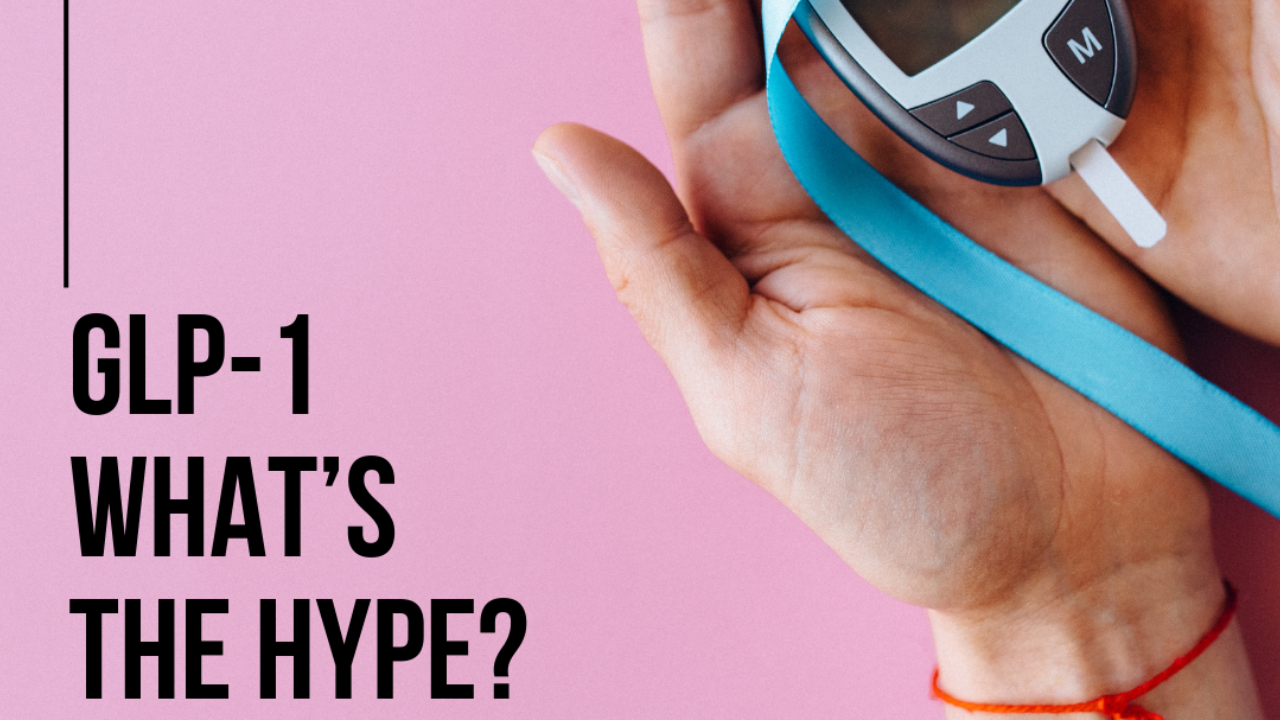GLP-1 Receptor - What's all the hype?
Aug 13, 2024
Are you familiar with GLP-1?
Are you someone who is currently taking GLP-1s?
If your not familiar, there are some things that you should know.
GLP-1 is short for glucagon-like peptide-1. It's an incretin hormone produced in the gut and extra-intestinally that is released in response to a food bolus; increased levels are detectable within 15 minutes of starting a meal. GLP-1 encourages insulin release from the pancreas to help lower blood sugar levels, increases the volume of pancreatic beta-cells, inhibits gulcagon release, and increases satiety after meals by acting on the appetite regulation centers in the brain and slowing gastric emptying.
GLP-1 receptor agonists (GLP-1 RAs) are a class of medications primarily used to manage blood sugar levels in individuals with type 2 diabetes. These medications have also gained tremendous popularity for weight loss in obese and overweight individuals. They mimic the action of the naturally occuring hormone GLP-1 and should be used to complement healthy lifestyle and dietary habits.
GLP-1s do not come without side-effects. Common gastrointestinal complaints include nausea, diarrhea/constipation, anorexia (loss of appetite), and vomiting. Use of these medications have also been associated with increased risk of biliary disease, pancreatitis, bowel obstruction, and gastroparesis. Because GLP-1 RAs interfere with the absorption and utilization of essential vitamins and minerals in the body, the can potentially lead to nutrient depletions over time.
Here are some diet, lifestyle and supplementation changes that you can do if you are currently taking GLP-1 RAs.
- Consume a balanced macronutrient-rich diet that prioritizes lean protein (1 gram per lb/body weight, non-starchy vegetables, and healthy fats, while avoiding processed foods, added sugars, alcohol, trans fats, and sweetened beverages. Consider supplementing with additional protein powder to help meet protein needs, promote satiety and normal appetite, and support lean muscle mass retention, and healthy body composition.
- Get adequate hydration and natural detoxification by drinking filtered water with electrolytes throughout the day, and consume fiber before meals to support satiety and promote bowel regularity.
- To help with sugar cravings, try mixing 3 g. of L-glutamine powder in water with lemon. Glutamine quickly converts to glucose and may rapidly satiate the craving without impacting insulin. Consider 0 g sugar dark chocolate sweetened with allulose. Allulose has been shown to stimulate secretion of GLP-1
- Incorporate regular strength and/or high intensity interval training to support healthy blood sugar and body composition and to promote retention of lean muscle mass and healthy metabolic rate.
- Adopt stress-reduction techniques such as daily meditation and deep breathing. Both stress and sleep deprivation impact blood sugar and mechanisms in the brain that govern appetite and food cravings.
- Switch to clean, simple skincare and household products, avoiding exposure to pollutants, synthetic chemicals and other environmental toxins.
Losing weight can be tough, but there are things that you can do to make it a little easier. If you need some help with weight loss and/or the proper supplementation, reach out to me at [email protected].
I know what it's like to be sick and tired of feeling sick and tired every day of your life. I know what it's like to follow diet after diet and not make progress. I know what it's like to wish that someone would just show you the way. I know that it's hard to get a hold of your health. I have been there and my goal with the Lean6 Transformation Program is to help you finally get the results that you not only want, but also deserve. You deserve to be happy & healthy and live a life where you get to do all the things that you love to do. Let me help you do that!
Reach out to me and lets get started.
Click the button below and find out more about the
Lean6 Transformation Program.

